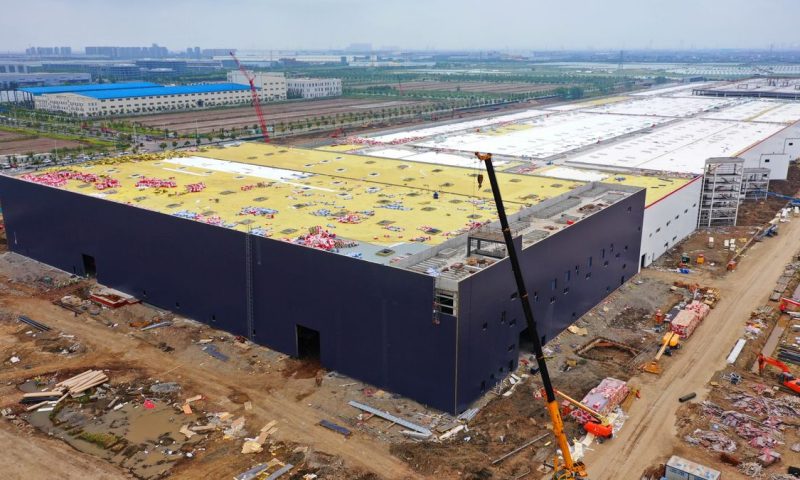German business confidence has fallen for the fifth consecutive month and hit a nearly seven-year low, according to a closely watched survey.
BERLIN — German business confidence has fallen for a fifth consecutive month and hit a nearly seven-year low, a closely watched survey found Monday — adding to mounting worries that Europe’s biggest economy is headed for a recession.
The Ifo institute said its monthly confidence index declined to 94.3 points in August from 95.8 in July. Managers’ views of the current situation and the outlook for the next six months both worsened.
It was the lowest reading for the index since November 2012. Ifo’s head, Clemens Fuest, said “there are ever more indications of a recession in Germany.”
The survey is based on responses from some 9,000 firms and is a leading indicator of the health of the economy.
The German economy contracted by 0.1% in the April-June period and the country’s central bank, the Bundesbank, said last week it “could decline slightly” again in the summer. A technical recession is defined as two consecutive quarters of negative growth.
Bundesbank President Jens Weidmann warned against excessive pessimism in a weekend newspaper interview, saying that he sees “no reason to panic.” He noted that Germany is coming off a long upswing with healthy employment and said “the outlook is particularly uncertain at the moment,” citing political factors such as Brexit and international trade conflicts.
Still, Ifo’s latest survey showed an across-the-board decline in confidence. In the manufacturing sector, “the last time that industrial companies demonstrated such pessimism was in the crisis year of 2009,” Fuest said. He added that “not a single ray of light was to be seen in any of Germany’s key industries.”
ING economist Carsten Brzeski said the latest Ifo report “suggests the risk of a negative sentiment loop is larger than ever.”
“It would take some relief from the ongoing trade conflicts and a general sentiment improvement to boost industrial activity at least toward the end of the year,” he said. While signs of damage to the domestic economy are only “tentative so far,” he added that they “could easily mutate into severe problems.”

